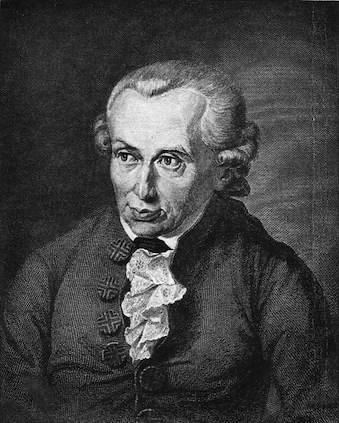SECTION IV: What is it worth?
Reading 2: from Kant's Grounding of the Metaphysics of Morals
Our second reading from Kant displays again his intricate and complex thinking on matters of fundamental philosophical importance. Kant's writings represent a pinnacle of the Age of Reason and the conviction that rational analysis can lead to important discoveries of truth. Kant believed, indeed, that a certain form of rational behavior is equivalent with moral behavior: morality is rationality, for Kant; it is our means of lifting ourselves out of the physical, animal world in which part of our nature lies and realizing - making real - something of true value.
Click here for the Reading File in pdf format.
|
|
"If then there is a supreme practical principle or, in respect of the human will, a categorical imperative, it must be one which, being drawn from the conception of that which is necessarily an end for everyone because it is an end in itself, constitutes an objective principle of will, and can therefore serve as a universal practical law. The foundation of this principle is: rational nature exists as an end in itself." |
Etching of Kant, by Raab, 1791
|
Wittgenstein on animal v. rational life "Man Must Live" - Kwame Dawes: For a sense of what Kant may mean by the "system of nature" directed towards our preserving our lives, see this powerful poem. "Stand By Me" - For a sense of what Kant may mean when he declares that no human can consistently will that none should help another. Inspiring. |
|
Go on to Bentham. |
|
Go back to Aristotle. |
|

